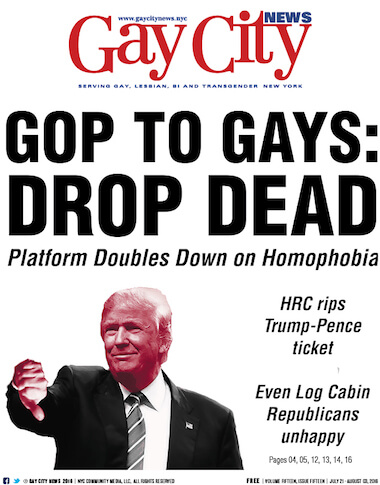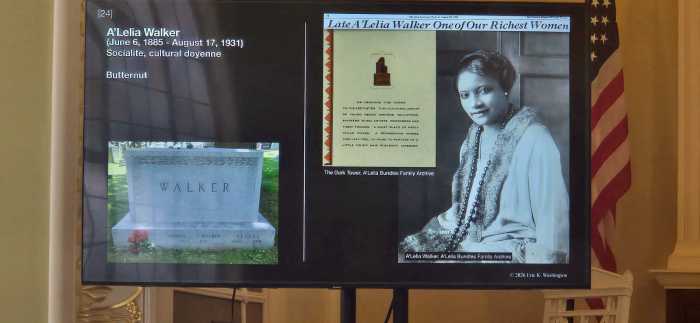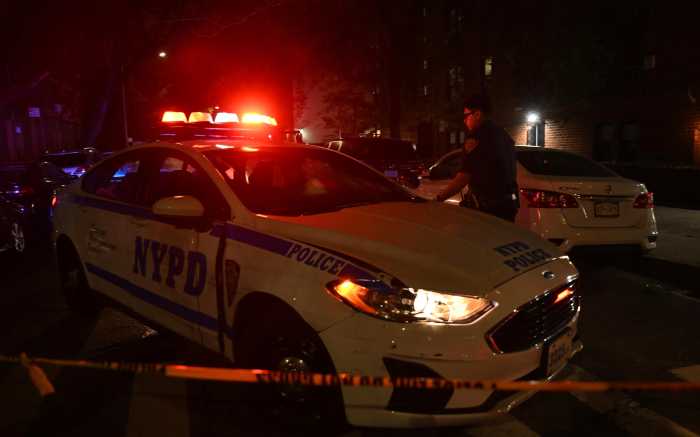The Supreme Court handed a final victory to Gavin Grimm on June 28 when it refused to review a decision by the Richmond-based US Court of Appeals for the Fourth Circuit, which ruled last year that the Gloucester County (Virginia) School Board violated Title IX of the Education Amendments of 1972 and the Equal Protection Clause of the 14th Amendment when it refused to let Grimm use the boys’ restrooms at his high school and would not correct his name and gender on school records to be consistent with his gender identity.
In a statement posted on Twitter, Grimm wrote, “I was barred from the bathroom at my high school seven years ago… now it’s over. We won… Too many people played integral roles in our success and too many people who loved me so much. I have nothing more to say but thank you, thank you, thank you. Honored to have been part of this victory.”
Grimm, a courageous young transgender man who enjoyed stalwart support from his parents, faced down rooms full of hostile speakers at two School Board meetings in November and December 2014, as the board was considering a resolution to exclude transgender students from using restrooms consistent with their gender identity. The high school principal had allowed him to use the boys’ restrooms, which he did without incident for almost two months, but then parents complained to the board, resulting in the tense board meetings. Despite his heartfelt testimony, the Board voted 6-1 to adopt the resolution, while at the same time approving expenditures to increase privacy in the boy’s restrooms by putting dividers between urinals and privacy strips on toilet stall doors. The board authorized expenditures to transform several restrooms to single-use facilities, and provided that Grimm could use those restrooms, the restroom in the nurse’s office, or the girls’ restrooms.
None of these choices suited Grimm. The single-use restrooms and the nurse’s office were too far from where his classes were scheduled to be practical, using girls’ restrooms when he had already transitioned was out of the question, and the policy was stigmatizing and psychologically harmful – as well as medically harmful since Grimm tried to avoid urinating while at school and ended up with urinary tract infections.
Although Grimm obtained a court-ordered name-change and received a new birth certificate identifying him as male after top surgery, the board refused to recognize him as a boy and allow him to use the boys’ restrooms, and denied his request to correct school records to show his legal name and sex.
The American Civil Liberties Union filed suit on Grimm’s behalf in federal district court, claiming violations of Title IX and the Equal Protection Clause. Title IX prohibits educational institutions that receive federal funding from discriminating against students on the basis of sex. The district judge dismissed the Title IX claim, despite a letter from the US Department of Education stating that Grimm’s case would be covered under Title IX. The judge disagreed, ruling that gender identity claims could not be brought under Title IX, and reserving judgment on the Equal Protection claim while Grimm appealed the dismissal ruling. This lawsuit had prompted the US Department of Education to adopt a formal policy that it communicated to all school districts in the country through a “Dear Colleague” letter, directing schools to acknowledge students’ gender identity for all purposes.
The Fourth Circuit Court of Appeals reversed the dismissal of the Title IX claim, finding that the district judge should have “deferred” to the Obama Administration’s interpretation of Title IX. The Supreme Court granted the school board’s petition to review that ruling, scheduling it for oral argument in March 2017, but shortly before the argument date the Trump Administration formally “withdrew” the Obama Administration’s interpretation of Title IX, and the Supreme Court cancelled the hearing and sent the case back to the Fourth Circuit for reconsideration.
Throughout Trump’s presidency, the Justice Department and other federal agencies took the position that federal sex discrimination laws did not apply to gender identity discrimination claims. After the Supreme Court ruled in 2020 in Bostock v. Clayton County, Georgia, that Title VII’s ban on employment discrimination because of sex applied to gender identity claims, the Trump Administration argued that the decision did not apply to other federal sex discrimination laws, despite several lower federal court decisions applying Bostock’s reasoning in cases under other statutes.
Upon taking office, President Joe Biden issued an Executive Order directing federal agencies to apply the Bostock ruling broadly, and both the Justice Department and the Education Department have issued interpretations of Title IX applying it to sexual orientation and gender identity claims. But these actions are not binding on the federal courts, so the Supreme Court’s June 28 announcement sends an important signal to the federal judiciary, implicitly rejecting the Trump Administration’s narrow application of the Bostock ruling.
After the Fourth Circuit sent Gavin Grimm’s case back to the district court in 2017, the school board argued that the case should be dismissed as “moot” because Grimm had graduated from the high school that spring. But the district court and the Fourth Circuit determined that it was not moot. Grimm still had a potential claim for damages for violation of his rights under Title IX and the Constitution, and his complaint had been amended in response to the school board’s refusal to acknowledge his gender identity in school records.
The case was assigned to a different district judge, who granted summary judgment to Grimm on all his claims, finding that the School Board violated both Title IX and the 14th Amendment. Significantly, the court found that “heightened scrutiny” applied to the Equal Protection claim, under which the board had the burden of showing that its policy was necessary to achieve an important state interest. In this case, the board said the policy was necessary to protect the privacy of other students, but the court rejected that argument, finding that the alterations the board had authorized for the boys’ restrooms had obviated that concern. Last August, the Fourth Circuit agreed with the district court, and denied the school board’s motion to have the case heard anew by the full 15-judge appeals court bench. The school board filed a petition with the Supreme Court seeking review in February 2021.
Justices Clarence Thomas and Samuel Alito announced that they would have granted the petition to review this case.
A decision not to review a case is not a ruling by the Supreme Court on the merits of the case, but it takes on significant weight because the Court has consistently refused to intervene as lower federal courts have ruled in favor of transgender students in these kinds of school disputes, both in cases where students are seeking the right to use facilities consistent with their gender identities and in cases where groups of parents have sued to challenge school boards that have sided with transgender students, claiming a violation of cisgender students’ privacy rights. Rulings by the Third, Seventh, Ninth, and 11th Circuits have generally agreed with the Fourth Circuit’s legal analysis, which was set forth in a lengthy, deeply researched opinion.
The Supreme Court’s denial of review in these cases may also influence lower courts that are considering challenges to state laws barring transgender girls and women from competing in women’s scholastic sports, since Title IX and the Equal Protection Clause would take priority over state statutes under the Constitution’s Supremacy Clause.
As of June 28, the court had still not issued decisions in several cases argued this term, and had recently included in its conference list a petition for review of the Washington Supreme Court’s decision in Arlene’s Flowers v. State of Washington, in which the state court upheld a ruling that the proprietor of Arlene’s Flowers, Baronelle Stutzman, violated the Washington’s anti-discrimination law by refusing to make floral decorations for a gay wedding. The day after the court announced its decision in Fulton v. City of Philadelphia, attorneys for Arlene’s Flowers filed a statement with the Court urging it to grant review and address the question the Court had avoided answering in Fulton: whether businesses have a 1st Amendment right to refuse services or goods to same-sex couples. The Court will probably round out its current Term within the next few weeks and may yet put that case on the hearing list for the new Term that begins in October 2021.



































